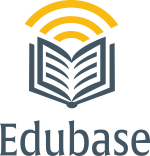Teacher’s formation, ethical values and the cultural digital media: referential from teacher’s practices in the contemporary school
DOI:
https://doi.org/10.7213/rde.v14i42.6644Resumo
This article analyzes changes in teachers’ practice regarding the cultural processes generated by the programming of virtual media, touting the identities of contemporary students of the school. Therefore, it contextualizes the current cultural scene, and
incorporates notions of subject, subjectivity and ethics in contemporary society based on Giroux, Costa, Hall and Bauman. The processes of teaching practices are discussed based on the research of Hagemeyer (2006–2008),on teachers’ catalysts, defined as those who the new needs and interests of students and add to their practices in the current school. Teachers’ perception of the influences of contemporary cultural processes, notably the culture of digital media in the motivations of children and young students, has led them to modify strategies and attitudes for building ethical values and identity in their classes, processes that are identified and analyzed as contributions to the necessary changes to such training. It intends to compare similar recent research (2009–2012), analyzing practices and testimonials from of catalyst teachers, on the evolution of digital media, and the impact of change of values of children and young students. The rules and practices of teachers indicated advances and procedures aimed at ethical attitudes and human rights, in addition to revealing proximity to the culture of the students. The common points between both groups led to the identification of references on the formation of ethical and social values in pedagogical teachers practices, contributing to initial and continuing teacher training in this perspective.
Downloads
Referências
BAUMAN, Z. O mal-estar da pós-modernidade. Trad. Mauro Gama e Claudia Gama. Rio de Janeiro: Jorge Zahar, 1998.
BAUMAN, Z. Modernidade líquida. Trad. Plínio Dentzien. Rio de Janeiro: Jorge Zahar Editor, 2001.
BAUMAN, Z. Vida para consumo. Trad. Carlos Alberto Medeiros. Rio de Janeiro: Zahar, 2008.
BELLONI, M. L. O que é mídia e educação. Campina: Autores Associados, 2001.
CANDAU, V. M. C. Cultura, linguagem e subjetividade no ensinar e aprender. Rio de Janeiro: DP&A, 2002.
COSTA, M. V. Sobre as contribuições das análises culturais para a formação de professores do início do século XXI. Educar em Revista, n. 37, p. 129-152, maio/ago. 2010.
FOUCAULT, M. Vigiar e punir. 11. ed. Petrópolis: Vozes, 1984.
FOUCAULT, M. A ética do cuidado de si como prática de liberdade. In: FOUCAULT, M. Ditos & escritos V: ética, sexualidade, política. Trad. E. Monteiro e I. A. D.
Barbosa. Rio de Janeiro: Forense Universitária, 2004.
GIMENO SACRISTÁN, J. Educar e conviver na cultura global: as exigências da cidadania. Porto Alegre: Artmed, 2002.
GIROUX, H. O pós-modernismo e o discurso da crítica educacional. In: GIROUX, H. Teoria educacional crítica em tempos pós-modernos. Porto Alegre: Artes Médicas, 1993.
GIROUX, H. Cruzando as fronteiras do discurso educacional. Trad. Magda França Lopes. Porto Alegre: Artmed, 1999.
GREEN, B.; BIGUN, C. Alienígenas na sala de aula. In: SILVA, T. T. Alienígenas na sala de aula. Petrópolis: Vozes, 2005. p. 203-237. (Coleção Estudos Culturais).
GUATTARI, F. Revolução molecular. São Paulo: Brasiliense, 1987.
HAGEMEYER, R. C. C. Função docente e contemporaneidade: fundamentando o processo das práticas catalisadoras. 2006. 266 f. Tese (Doutorado em Educação)— Universidade de São Paulo. São Paulo, 2006.
HAGEMEYER, R. C. C. Currículo e mudança: práticas mediadoras como catálise, ultrapassagens e referências para a formação docente na contemporaneidade. Revista Currículo sem Fronteiras, v. 11, n. 1, p. 232-251, jan./jun. 2011.
HALL, S. Identidades culturais na pós-modernidade. 2. ed. Trad. Tomaz Tadeu da Silva e Guacira Lopez Louro. Rio de Janeiro: DP&A, 1998.
HARVEY, D. Condição pós-moderna: uma pesquisa sobre as origens da mudança cultural. Trad. Adail Sobral e Maria Estela Gonçalves. São Paulo: Loyola, 1993.
JAMESON, F. Pós-modernismo: a lógica cultural do capitalismo tardio. Trad. Maria Elisa Cevasco. São Paulo: Ática, 1996.
LÜDKE, M.; ANDRÉ, M. E. D. A. Pesquisa em educação: abordagens qualitativas. São Paulo: EPU, 1986.
SHULMAN, L. S. Knowledge and teaching: Foundations of the new reform. Harvard Educational Review, v. 57, n. 1, p. 1-23, Feb. 1987.
VIDAL, D. G. No interior da sala de aula: ensaio sobre cultura e práticas escolares. Revista Currículo sem Fronteiras, v. 9, n. 1, p. 25-41, jan./jun. 2009.
WILLIAMS, R. The long revolution. Harmondsworth: Penguin, 1961.
WILLIAMS, R. Cultura e sociedade. Trad. Leônidas Hegenberg, Octanny Silveira da Mota e Anísio Teixeira. São Paulo: Companhia Editora Nacional, 1969.
Downloads
Publicado
Como Citar
Edição
Seção
Licença
O(s) autor(es) transfere(m), por meio de cessão, à EDITORA UNIVERSITÁRIA CHAMPAGNAT, pessoa jurídica de direito privado, inscrita no CNPJ/MF sob o n.º 76.659.820/0009-09, estabelecida na Rua Imaculada Conceição, n.º 1155, Prado Velho, CEP 80.215-901, na cidade de Curitiba/PR, os direitos abaixo especificados e se compromete a cumprir o que segue:
- Os autores afirmam que a obra/material é de sua autoria e assumem integral responsabilidade diante de terceiros, quer de natureza moral ou patrimonial, em razão de seu conteúdo, declarando, desde já, que a obra/material a ser entregue é original e não infringe quaisquer direitos de propriedade intelectual de terceiros.
- Os autores concordam em ceder de forma plena, total e definitiva os direitos patrimoniais da obra/material à EDITORA UNIVERSITÁRIA CHAMPAGNAT, a título gratuito e em caráter de exclusividade.
- A CESSIONÁRIA empregará a obra/material da forma como melhor lhe convier, de forma impressa e/ou on line, inclusive no site do periódico da EDITORA UNIVERSITÁRIA CHAMPAGNAT, podendo utilizar, fruir e dispor do mesmo, no todo ou em parte, para:
- Autorizar sua utilização por terceiros, como parte integrante de outras obras.
- Editar, gravar e imprimir, quantas vezes forem necessárias.
- Reproduzir em quantidades que julgar necessária, de forma tangível e intangível.
- Adaptar, modificar, condensar, resumir, reduzir, compilar, ampliar, alterar, mixar com outros conteúdos, incluir imagens, gráficos, objetos digitais, infográficos e hyperlinks, ilustrar, diagramar, fracionar, atualizar e realizar quaisquer outras transformações, sendo necessária a participação ou autorização expressa dos autores.
- Traduzir para qualquer idioma.
- Incluir em fonograma ou produção audiovisual.
- Distribuir.
- Distribuir mediante cabo, fibra ótica, satélite, ondas ou qualquer outro sistema que permite ao usuário realizar a seleção da obra ou produção para recebê-la em tempo e lugar previamente determinados por quem formula a demanda e nos casos em que o acesso às obras ou produções se faça por qualquer sistema que importe em pagamento pelo usuário.
- Incluir e armazenar em banco de dados, físico, digital ou virtual, inclusive nuvem.
- Comunicar direta e/ou indiretamente ao público.
- Incluir em base de dados, arquivar em formato impresso, armazenar em computador, inclusive em sistema de nuvem, microfilmar e as demais formas de arquivamento do gênero;
- Comercializar, divulgar, veicular, publicar etc.
- Quaisquer outras modalidades de utilização existentes ou que venham a ser inventadas.
- Os autores concordam em conceder a cessão dos direitos da primeira publicação (ineditismo) à revista, licenciada sob a CREATIVE COMMONS ATTRIBUTION LICENSE, que permite o compartilhamento do trabalho com reconhecimento da autoria.
- Os autores autorizam a reprodução e a citação de seu trabalho em repositórios institucionais, página pessoal, trabalhos científicos, dentre outros, desde que a fonte seja citada.
- A presente cessão é válida para todo o território nacional e para o exterior.
- Este termo entra em vigor na data de sua assinatura e é firmado pelas partes em caráter irrevogável e irretratável, obrigando definitivamente as partes e seus sucessores a qualquer título.
- O não aceite do artigo, pela EDITORA UNIVERSITÁRIA CHAMPAGNAT, tornará automaticamente sem efeito a presente declaração.












